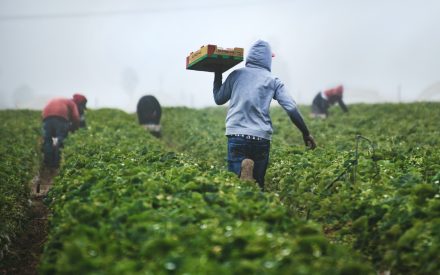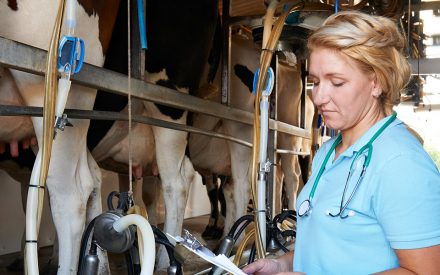Like any business, farms depend on good employees for things to run smoothly. When you have a vacancy on your team, structure your interviews so that you can hire the best available employee. Make sure you prepare for interviews in advance, and allow yourself enough time to consider each individual carefully.
On-farm interviews are best, as they give potential employees a chance to see the working environment. Be ready at the agreed upon meeting spot and greet them with a smile, welcoming them to your farm. Your farm office or an empty conference room is preferable over a busy employee break room.
Making first impressions
First impressions matter, but our brains start to form impressions quickly without all the information necessary to make a fair assessment. From the time you say hello and shake hands, you are making judgments about the person so make sure your judgments are related to the candidate’s ability to do the job. Every candidate deserves your time and attention to make an accurate evaluation. Strive to create a positive impression for every individual you interview, even if it’s clear that they aren’t the best fit.
Have a current job description and a list of questions prepared, and ask each candidate the same questions. This will help you remember to cover everything and make it easier to compare responses between candidates.
Even if the candidate has little or no farm experience, it’s still important to ask them about previous positions to gain an understanding of their skills and how they handle challenges. It’s best to include behavioral questions, which often start with “Tell me about….”. These questions help to get the candidate talking and hopefully share specific and relevant information. Questions like “Tell me about a job you didn’t like”, “Tell me about your favorite supervisor, and what made them your favorite?”, can be useful.
Gauging collegiality
Employees that get along with their co-workers are critical for teams to operate smoothly. Include questions like “Tell me about a former co-worker you found challenging to work with. What are some steps you took to improve that relationship?” This can get at your expectation that your team will work well together.
How much to talk
Try to avoid doing all the talking. The best interviews follow the 80/20 rule with the candidate doing 80 percent of the talking. Be prepared to rephrase a question if the individual gives a short or incomplete response. Be patient and give them time to formulate their thoughts and get comfortable sharing.
Interview length
Make sure to leave adequate time at the end of the interview for the candidate to ask you questions. The best job candidates will ask you questions because they are genuinely interested in the position. A potential red flag would be candidates that have no questions or questions that sound “canned”, particularly if it’s regarding something you’ve already covered with them.
Closing the interview
Finally, close the interview with next steps. If you will be narrowing the candidate pool for second interviews, let them know that. Give the candidate an expectation of how and when they will hear from you.
If you have a viable “second choice” candidate, it’s best to hold off notifying them until you have an accepted offer from your first choice. That way you can avoid the awkward conversation of asking a previously rejected candidate if they are still interested in working for you.
While dealing with vacancies can be frustrating and time consuming, try to look at the process as an opportunity to improve your team and ultimately your farm’s performance. Remember, the investments you make in human resources can be some of the most valuable investments you make.


 Understanding the Total Compensation Statement Benefits Everyone
Understanding the Total Compensation Statement Benefits Everyone Workplace Conflict: Why It Happens and What You Can Do About It
Workplace Conflict: Why It Happens and What You Can Do About It First impressions matter: The importance of onboarding farm new hires
First impressions matter: The importance of onboarding farm new hires Effective Farm Safety Training Starts with a Purpose
Effective Farm Safety Training Starts with a Purpose